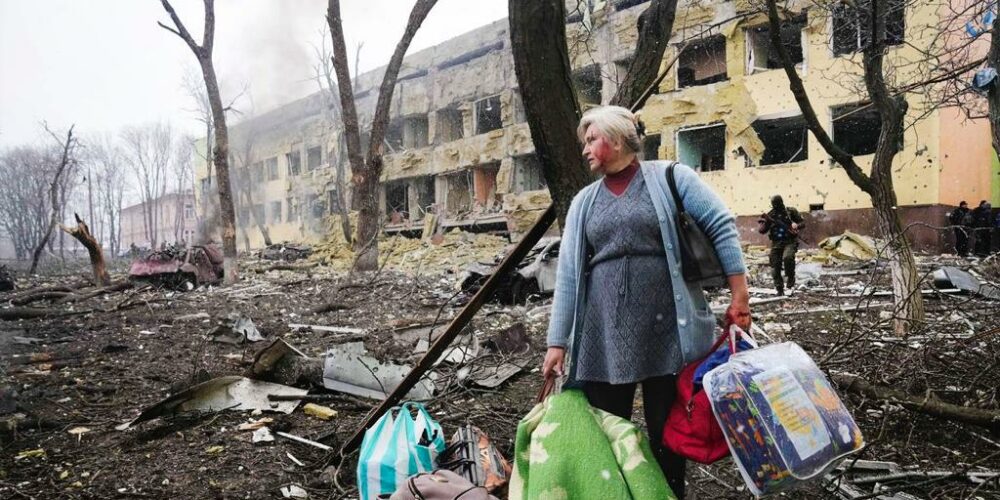In the March Socialist Voice, a piece on Ukraine proposed the proximate cause of the war is NATO. There are good reasons why Communists in Western European countries should highlight NATO’s role to its own populations insofar as it helps counter one-sided narratives of the conflict. However, some have also been guilty of over-emphasising proximate causes at the risk of appearing silent or apologetic on immediate causes: the Russian state monopoly capitalism and its ambition to consolidate its influence over a state it perceives to be in its “sphere of influence”.
Communists know there are no good or bad imperialisms. Nor is the enemy of my enemy necessarily my friend. Nor is crony capitalist Russia some “objectively progressive force” because it is an obstacle in the way of Western imperialism and claiming to fight xenophobic nationalists. Its actions have strengthened NATO, and there are plenty of xenophobes within its borders if it is genuine in its desire to eradicate neo-Nazism.
Ultimately, there is just imperialism, inter-imperial rivalries among different state monopoly capitalisms and the respective ruling elites’ geopolitical interests. There is also our commitment to the right of nations to self-determination. The Russian political and military elite no doubt has concerns over expanding NATO membership, albeit an entity the Russians once indicated a willingness to join and which they have occasionally cooperated with in the past – see “Partnership for Peace”. But the Russian political and military elite can also, given their nuclear armoury, adequately protect their borders without violating the internationally recognised borders of others.
While NATO should turn down Ukrainian requests for membership, is it not unreasonable to expect the Ukrainian people to “de-militarise” their society in total? The degree of indigenous militarisation is entirely a matter for the people within the border of Ukraine to self-determine through their own political and class struggles. We should not impose internal de-militarisation to appease the concerns of foreign interests. Would Irish people like it if, in a struggle with Britain, the international community imposed de-militarisation on us to suit the whims of our more aggressive and powerful neighbour because they claimed “legitimate strategic interests” over us? While Communists should have no issue with realpolitik in international affairs, it should not be the realpolitik of state monopoly capitalism we settle for. One might also suggest that expecting a country to de-militarise is unreasonable and impractical when its neighbour has just invaded it.





